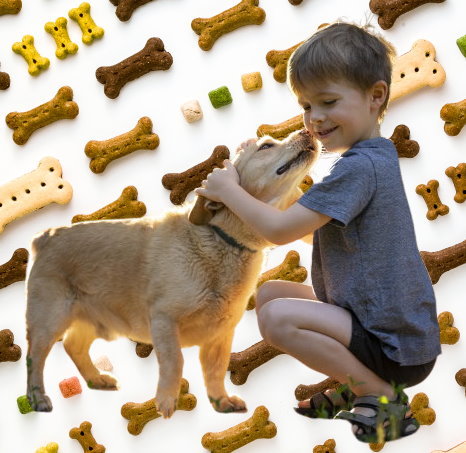Welcome to Dog Training Newbies !
Welcome to Dog Training Newbies !

Every dog has a distinct temperament, just like humans. Understanding your dog's temperament is crucial for effective training, socialization, and ensuring their overall well-being. In this article, we will explore the different aspects of a dog's temperament, how it influences their behavior, and how you can nurture and work with their unique personality traits.
WHAT IS DOG TEMPERAMENT?
Temperament refers to a dog's innate personality traits, which are influenced by a combination of genetic factors and early experiences. It determines how a dog perceives and reacts to various situations, people, and other animals. Understanding your dog's temperament helps you tailor training methods, socialization techniques, and provide appropriate environments that suit their individual needs.
RECOGNIZING DIFFERENT TEMPERAMENT TYPES:
Dogs can exhibit various temperament types, including:
a) Outgoing and Friendly: These dogs are typically sociable, confident, and enjoy interacting with people and other animals.
b) Shy and Reserved: Shy dogs are more cautious and may take time to warm up to new people or situations. They require gentle socialization and a calm environment.
c) Independent and Aloof: Some dogs prefer more independence and may appear aloof or less interested in social interactions. They still need socialization and training but may require different approaches.
d) Energetic and Active: These dogs have high energy levels and thrive in environments that provide mental and physical stimulation. They require regular exercise and engaging activities to keep them content.
e) Calm and Easygoing: Calm dogs are generally laid-back, adaptable, and less reactive to stimuli. They tend to be more relaxed and may require less intense exercise and stimulation.


THE INFLUENCE OF TEMPERAMENT ON BEHAVIOR:
A dog's temperament directly affects their behavior and responses to different situations. Understanding their temperament can help you predict and manage their reactions. For example, a shy dog may become fearful or anxious in new environments, while an energetic dog may exhibit destructive behavior if not given enough outlets for their energy. By recognizing these tendencies, you can tailor your training and provide the appropriate outlets for your dog's temperament.
NURTURING AND WORKING WITH YOUR DOG'S TEMPERAMENT:
a) Training: Training plays a crucial role in working with your dog's temperament. Positive reinforcement techniques, consistency, and patience are key to successful training. Tailor your training methods to suit your dog's temperament. For example, shy dogs may benefit from gradual exposure and rewards for calm behavior, while energetic dogs may thrive with interactive games and physical challenges.
b) Socialization: Socialization is vital for all dogs, regardless of their temperament. Gradual and positive exposure to different people, animals, and environments helps them become well-rounded and confident. Pay attention to your dog's comfort level and provide support and reassurance during socialization experiences.
c) Environment: Create an environment that suits your dog's temperament. Provide spaces where shy dogs can retreat and feel safe, while active dogs need ample opportunities for physical and mental stimulation. Understanding your dog's temperament helps you make conscious decisions about their environment and avoid situations that may cause unnecessary stress or anxiety.
d) Seek Professional Help: If you're struggling to understand or address your dog's temperament, consider seeking professional help from a reputable dog trainer or behaviorist. They can provide guidance tailored to your dog's specific needs and help you navigate any challenges you may encounter.
Understanding your dog's temperament is vital for effective training, socialization, and overall well-being. Recognizing the different temperament types, their influence on behavior, and working with their individual traits through training, socialization, and environment adjustments are key to nurturing a happy and balanced dog. By embracing and accommodating their unique personality, you can strengthen your bond and provide a fulfilling life for your beloved companion.